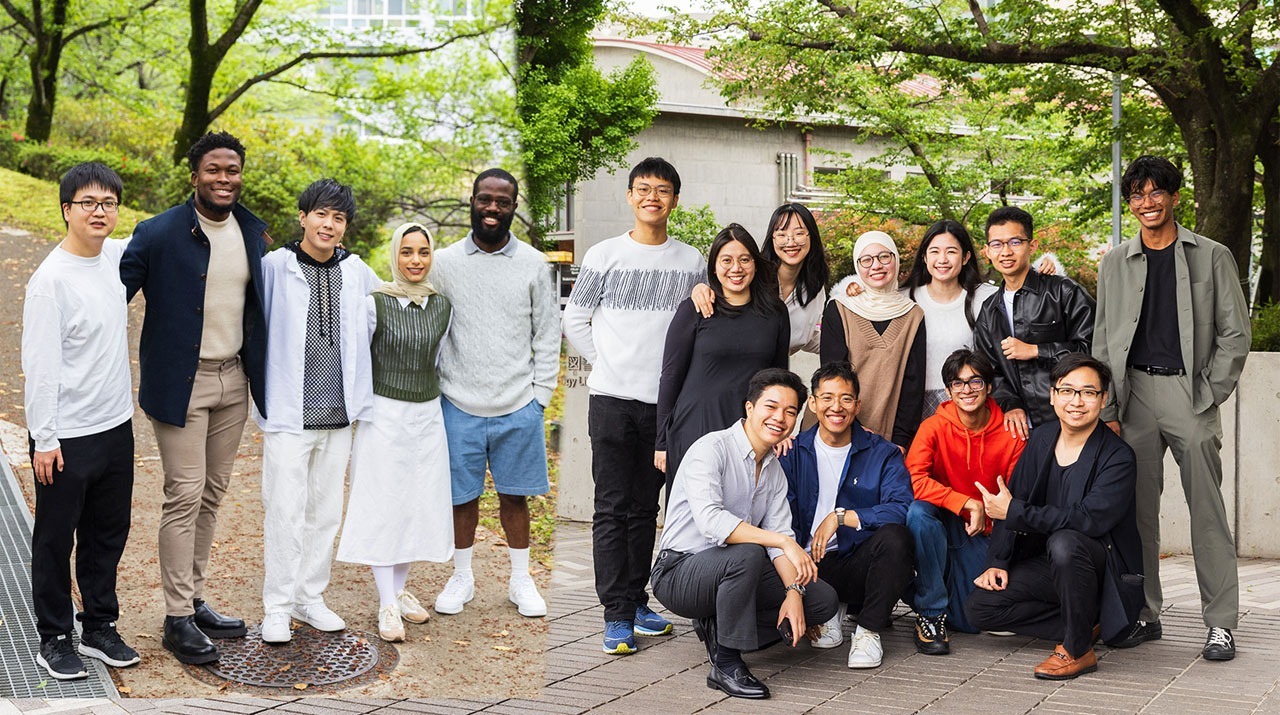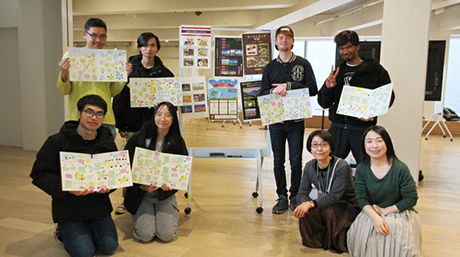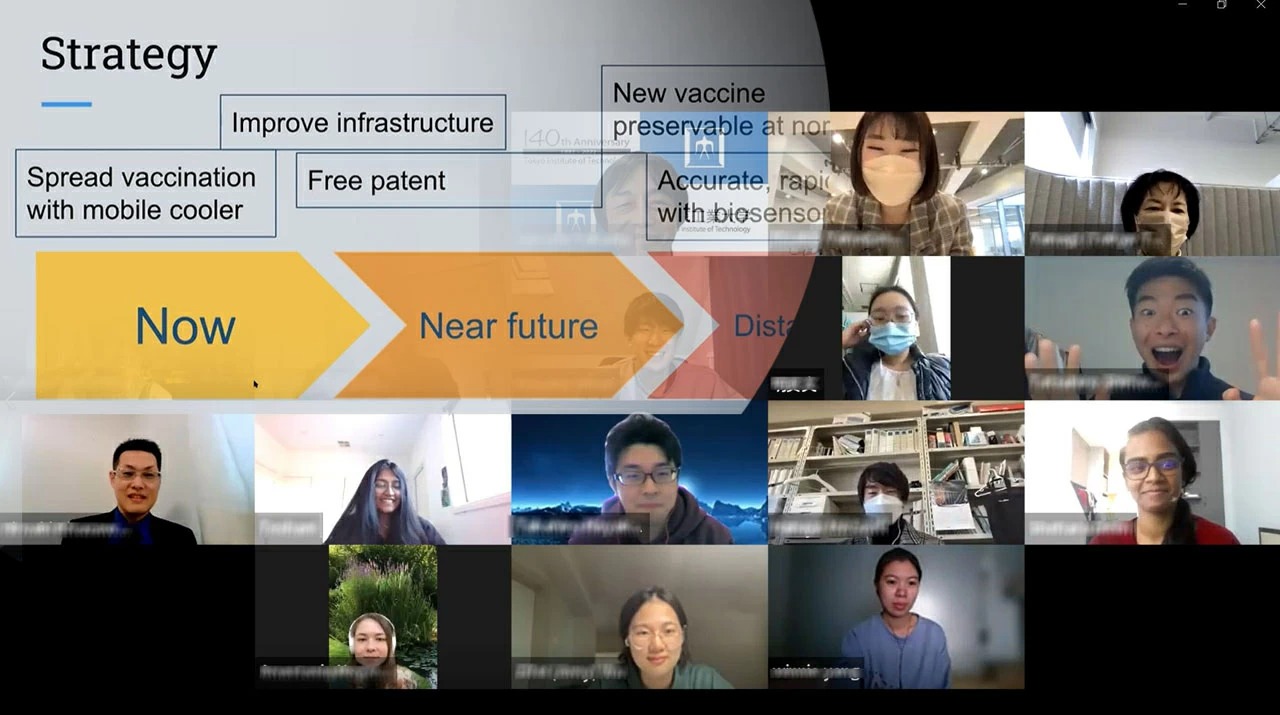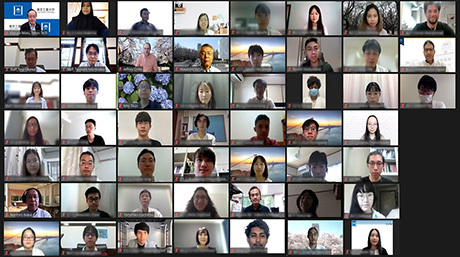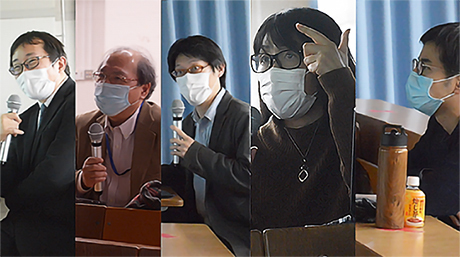Transdisciplinary Science and Engineering News
International Association for Impact Assessment conference held in Japan
The 36th Annual Conference of the International Association for Impact Assessment (IAIA) was held at Nagoya Congress Center from May 8 to 15, 2016. This was the first large-scale international meeting in this field held in Japan.
Co-chaired by Tokyo Tech's Professor Takehiko Murayama of the Department of Transdisciplinary Science and Engineering and Dean Sachihiko Harashina of the Faculty of Policy Informatics at Chiba University of Commerce, the event brought together 800 people from nearly 80 countries to discuss this year's theme of "Resilience and Sustainability."
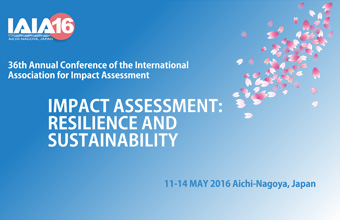 Logo of 36th annual meeting of International Association for Impact Assessment
Logo of 36th annual meeting of International Association for Impact Assessment
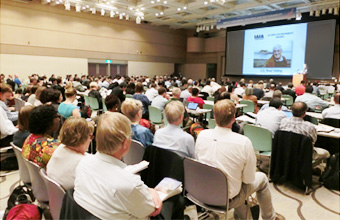 IAIA16 Opening Ceremony
IAIA16 Opening Ceremony
Resilience and IAIA 2016
IAIA, founded in 1980, is the principal international association in impact assessment. With the field being central to international development assistance, members of organizations such as the World Bank Group and Asian Development Bank are actively involved in the activities of IAIA.
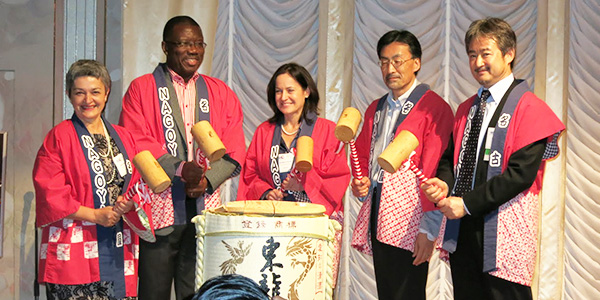
Opening ceremony of banquet with past, current, and incoming presidents
Resilience is emerging as an important global keyword in the 21st century. Originating from the field of ecology and eco-systems, the word has gained popularity in various fields such as environmental impact assessment, social and health impact assessment, international development, climate change, and natural and man-made disasters. The severe earthquake and nuclear accident in Japan in 2011 emphasized that increasing resilience capacity is an urgent issue facing Japanese society. For the rest of the world, too, improving resilience is imperative to achieving sustainable communities. Through this year's IAIA conference, three main goals were achieved.
1 Wide range of discussions on impact assessment
A total of 119 discussion sessions and over 500 oral and poster presentations were held during the conference. In a special session, the impact of the April 2016 Kumamoto Earthquakes was also discussed. Impact assessment fields in the Asian region have recently seen remarkable development, and participants evaluated the conference very highly, appreciating the latest information from the region and the opportunity to construct new human networks.
2 Progress in international cooperation
During the Asia Day Forum held by the World Bank on May 12, organizations involved in official development assistance reached a consensus to increase future cooperation. The Asian Development Bank (ADB), the Australian Department of Foreign Affairs and Trade (DFAT), the Japan International Cooperation Agency (JICA) and the World Bank Group agreed in principle to improve environmental and social considerations as well as country safeguard systems. A signing ceremony to acknowledge the consensus was held during the conference.
3 Raising awareness regarding impact assessment fields in Japan
In addition to the Ministry of the Environment, a long-term cooperative body, six other organizations of national governments endorsed this conference. It was important that not only the Cabinet Office, the Ministry of Foreign Affairs, and the Ministry of Finance, but also business authorities such as the Ministry of Land, Infrastructure, Transport and Tourism, the Ministry of Economics, Trade, and Industry, and the Ministry of Agriculture, Forestry, and Fisheries joined the endorsement. Additionally, the Japan Academic Council and 16 other domestic societies gave their endorsement. With these added bodies supporting the cause, awareness in the field of impact assessment is expected to increase in Japan.
Comments from Tokyo Tech Professor Murayama
Acting as co-chair, I planned and organized this conference, one of only few in Japan that attract such a large international audience, with Professor Sachihiko Harashina, dean of the Faculty of Policy Informatics at Chiba University of Commerce, and professor emeritus at Tokyo Tech. My laboratory assumed a role on the secretariat of this conference, together with the laboratory of Associate Professor Shigeo Nishikizawa. Starting in July 2013, we spent almost three years preparing for this event. We expect it would be quite beneficial to share information and experiences on this theme among delegates from all over the world.
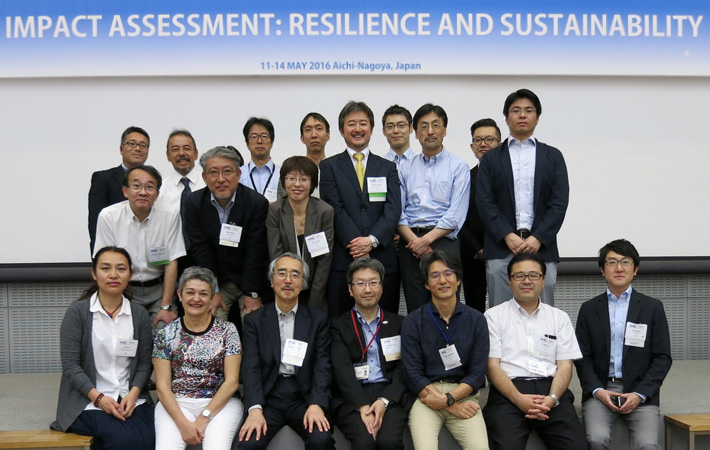
Japan members after closing plenary session
Contact
Professor Takehiko Murayama
Secretary General, IAIA16 Committees
E-mail : info@iaia-japan.org
Tel : 81-45-924-5550
